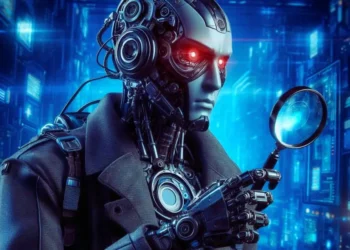As technology progresses, the prospect of artificial intelligence (AI) taking over human jobs has become increasingly tangible.
IBM recently announced its decision to suspend the hiring of roughly 7,800 positions that may eventually be supplanted by AI systems.
This decision will impact administrative functions such as human resources and could mark the beginning of a transformation in the labor market.
Labor Market Transformation
IBM has decided to slow down or stop hiring in back-office functions that do not involve dealing directly with customers, such as human resources.
IBM CEO Arvind Krishna estimates that 30% of these roles could be replaced by AI and automation within five years.
Impact of AI on Employment
The adoption of AI could have significant effects on human employment. A recent report by Goldman Sachs suggests that generative AI could “expose” 300 million jobs to automation, meaning that these positions could be downsized or replaced by AI systems.
Growing concern about the impact of AI on employment has led some companies to use it as justification for layoffs and reorganizations.
Dropbox is a recent case in point, having announced the termination of roughly 500 employees to revamp its workforce and establish itself as a leader in the “AI era.”
However, it is worth asking whether AI represents a real threat to human employment or whether it is simply a new chapter in the history of automation.
Throughout history, technological innovations have led to changes in the labor market, and AI may be just one of these transformations.
Future Outlook
Despite concerns about the impact on employment, Arvind Krishna notes that certain tasks, such as issuing employment verification letters or transferring employees between departments, could be fully automated.
Nevertheless, other human resources (HR) tasks, such as evaluating workforce diversity and performance, are not anticipated to be substituted by AI within the next ten years.
In the meantime, IBM continues to hire in areas such as software development and customer-facing positions. In fact, the company added approximately 7,000 new employees in the first quarter of the year.
IBM’s decision to halt hiring in certain jobs opens up a debate about the adoption of AI and automation in the job market. While it is true that these technologies can have an impact on employment, they can also lead to new opportunities and the emergence of new roles that take full advantage of AI capabilities in conjunction with human talent.
As AI technology continues to advance, it is clear that it will have an impact on the job market. However, it is important to consider the potential benefits and opportunities that can emerge as a result.
As IBM continues to explore the use of AI and automation, it is likely that other companies will follow suit, leading to a significant transformation in the labor market.
Follow us on our social networks and keep up to date with everything that happens in the Metaverse!
Twitter Linkedin Facebook Telegram Instagram Google News












































